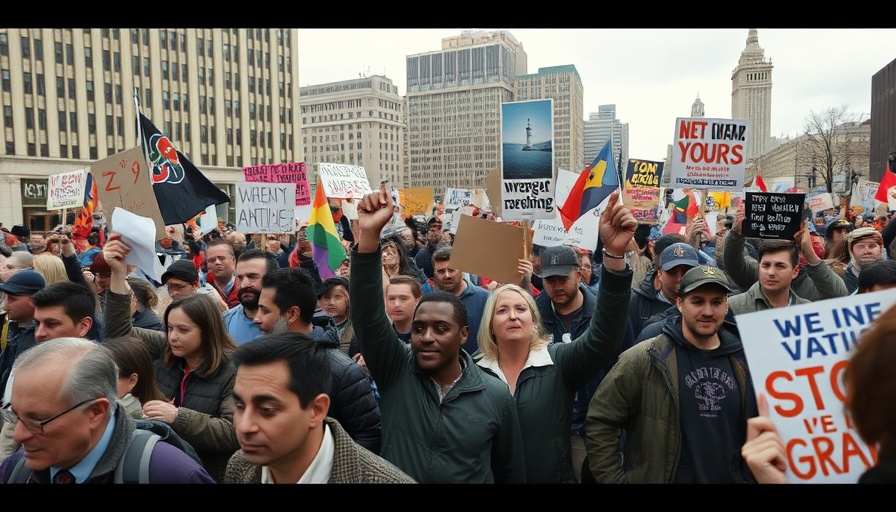
Understanding the Complexities of Immigration Enforcement
Mahmoud Khalil’s recent triumph against the efforts of ICE’s Intelligence Unit raises important questions about immigration enforcement and individual rights in the United States. Khalil’s case exemplifies the ongoing struggle between government surveillance and personal liberties within an increasingly complex national security framework.
The Background of Mahmoud Khalil’s Detention
Khalil, a Palestinian-American, became a target for ICE’s surveillance and immigration enforcement mechanisms due to his outspoken views on civil rights and immigration policies. Initially detained under what authorities argued were valid suspicions, his case serves as a brutal reminder of the delicate balance between national security and civil liberties. Many in the profession express unease at how far immigration enforcement has stretched its arms, often at the expense of individual rights.
Implications of Surveillance on Everyday Lives
The technological capabilities of ICE’s Intelligence Unit emphasize how modern surveillance techniques have transformed the landscape of immigration enforcement. With growing reliance on data collection and monitoring, the civil rights implications are profound. Khalil’s case has ignited a debate about the ethics of surveillance practices, especially regarding the role of technology in targeting individuals based on race or political standing.
Legal Controversies Surrounding Immigration Enforcement
The legal framework surrounding immigration enforcement is constantly in flux, particularly with varying interpretations of constitutional rights. Situations like Khalil's reveal the tension inherent between aggressive enforcement strategies and established civil liberties. In his fight for freedom, Khalil not only challenged his own detention but also sparked broader conversations about the legality of current immigration practices under the Constitution.
Political Dimensions of Immigration Policies Under Different Administrations
The shifting political landscape is pivotal in understanding immigration enforcement policies. Under Trump, aggressive deportation and surveillance tactics took center stage, emphasizing national security over civil rights. Conversely, under Biden, there has been an emphasis on reforming these harsh measures. The differing approaches expose a partisan divide that affects not only immigration policies but also standards of justice and fairness—particularly for minorities.
The Effects of Partisan Politics on Immigration Legislation
Partisan divides play a critical role in shaping immigration legislation in Congress. The rise of nativist sentiments often leads to bipartisan support for stringent immigration measures, while progressive movements advocate for comprehensive reforms. Khalil’s story is indicative of how these partisan splits can influence individual lives, with policies either providing a semblance of protection or exposing them to risk.
The Future of Immigration in America: Predicting Trends
As ongoing debates about immigration laws continue, experts predict that significant reforms may be necessary to address injustices revealed through high-profile cases like Khalil’s. The intersection of law, technology, and human rights will undoubtedly define the future direction of U.S. immigration policy. Advocates call for a more compassionate approach, particularly one that aligns more closely with democratic ideals as enshrined in the Constitution.
Calls to Action: Engagement and Awareness
As cases like Mahmoud Khalil’s unfold, the importance of active engagement becomes evident. Professionals in government, legal sectors, and civil rights advocacy must work collaboratively to enhance awareness and push for reforms that uphold individual rights. Civic participation remains critical in advocating against injustices within the immigration system.
In conclusion, the Khalil case highlights a pivotal moment in the interaction between immigration enforcement and civil rights in the U.S. It challenges individuals to reconsider both their relationship with government authority and their responsibility in advocating for democracy and justice.
 Add Row
Add Row  Add
Add 




Write A Comment